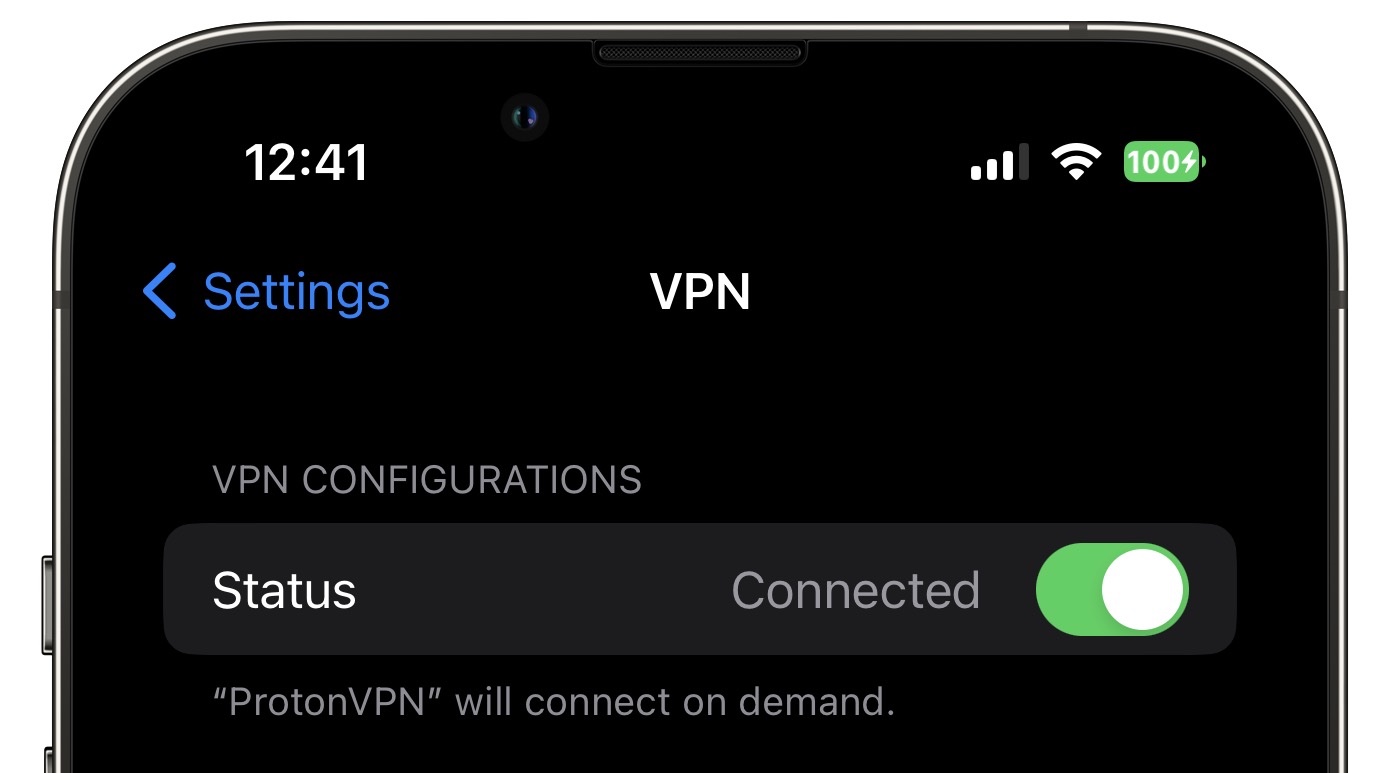![]()
Third-party VPNs made for iPhones and iPads routinely fail to route all network traffic through a secure tunnel after they have been turned on, something Apple has known about for years, a longtime security researcher has claimed (via
ArsTechnica).
Writing on a
continually updated blog post, Michael Horowitz says that after testing multiple types of virtual private network (VPN) software on iOS devices, most appear to work fine at first, issuing the device a new public IP address and new DNS servers, and sending data to the VPN server. However, over time the VPN tunnel leaks data.
Typically, when a users connects to a VPN, the operating system closes all existing internet connections and then re-establishes them through the VPN tunnel. That is not what Horowitz has observed in his advanced router logging. Instead, sessions and connections established before the VPN is turned on are not terminated as one would expect, and can still send data outside the VPN tunnel while it is active, leaving it potentially unencrypted and exposed to ISPs and other parties.
Horowitz claims that his findings are backed up by a
similar report issued in March 2020 by privacy company Proton, which said an iOS VPN bypass vulnerability had been identified in iOS 13.3.1 which persisted through three subsequent updates to iOS 13.
According to Proton, Apple indicated it would add Kill Switch functionality to a future software update that would allow developers to block all existing connections if a VPN tunnel is lost.
However, the added functionality does not appear to have affected the results of Horowitz's tests, which were performed in May 2022 on an iPadOS 15.4.1 using Proton's VPN client, and the researcher says any suggestions that it would prevent the data leaks are "off base."
Horowitz has recently continued his tests with iOS 15.6 installed and OpenVPN running the WireGuard protocol, but his iPad continues to make requests outside of the encrypted tunnel to both Apple services and Amazon Web Services.
As noted by
ArsTechnica, Proton suggests a workaround to the problem that involves activating the VPN and then turning Airplane mode on and off to force all network traffic to be re-established through the VPN tunnel.
However, Proton admits that this is not guaranteed to work, while Horowitz claims Airplane mode is not reliable in itself, and should not be relied on as a solution to the problem. We've reached out to Apple for comment on the research and will update this post if we hear back.
Article Link:
VPNs for iOS Are Broken and Apple Knows It, Says Security Researcher




